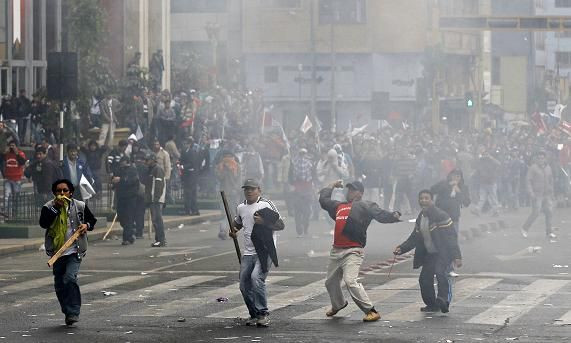Latin America’s Wave Of Protests Reaches Peru; Middle Class Takes To Streets Against Corruption

The social upheaval movement that is doing the rounds of Latin America has reached Peru. Two different protests have disrupted the streets of Lima this week, prompted by the government's decision to appoint well-connected but unqualified people as new judges on the Supreme Court, as directors of the Central Bank, and as Ombudsman.
More than 3,000 people marched through the capital in a peaceful manner on Monday, and sat down in front of Congress for over an hour. Police made them leave using tear gas, in a much-criticized show of force.
In response, the Peruvian Congress held an emergency meeting to annul the new appointments, as reported by Peruvian newspaper La Republica. Initially, the idea was to just annul the appointments of the Supreme Court judges and Ombudsman, since there were no specific complaints about the directors of the Central Bank. However, Congressman Javier Velásquez Quesquén announced that since the ten new officials were appointed through the same order, all of the appointments would be annulled.
The two most disputed appointments were those of two former congressmen who served during President Alberto Fujimori’s administration, who was convicted for crimes against humanity commited during his term in office. One of them, lawyer Rolando Sousa, resigned the post by email as soon as the protests started, stating that his decision was irrevocable.
A social protest of this size, and this effective, in Peru is unprecedented. “It is unusual for Peru to see such a strong reaction from society,” said Harvard University political analyst Steve Levitsky. “It is healthy for a democracy that a huge part of the middle class and the media, for the first time in months, have sprung in such a united way to a decision by the Government.”
© Copyright IBTimes 2024. All rights reserved.




















